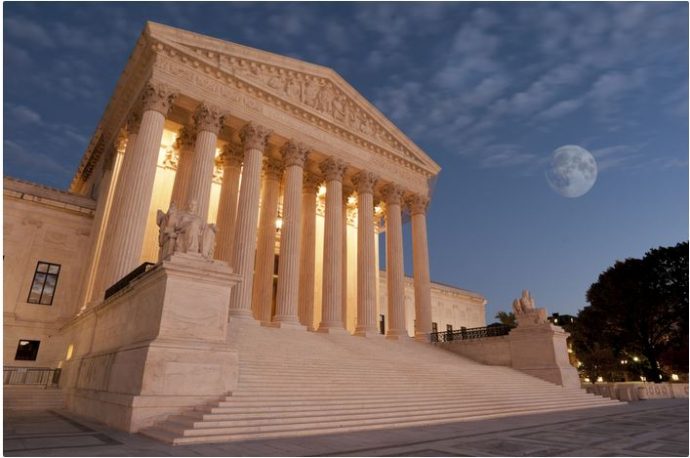David C. Innes, an associate professor of politics at The King’s College, New York City, has a post up at American Thinker that debunks this idea that the U.S. Supreme Court is the highest governing body, rather than just the highest court in the land. Innes also addresses what a poorly written opinion it is. I’ve bolded a few of sentences for emphasis.
Supporters of the Obergefell v Hodges decision have been declaring with nervous frequency that same-sex marriage is now “the law of the land.” The message is: The matter is closed, the conversation’s over. This is the future. Get used to it.
But this need not be the case. In his haste to get his social revolution on the road, Justice Anthony Kennedy forgot to hitch the cart of his agenda to the Constitutional horse. As a consequence, no one is obligated to get on board.
For at least the last half century, the Supreme Court has been willfully creative in its reading and application of the constitutional text. Roe v Wade is only the most infamous example.
…
It is thus “indefensible as a matter of constitutional law.” The Court has dropped even the pretense of applying the words of the fundamental law, of allowing the people to govern themselves through the law they have consented to obey.
…
Without that connection to civil law, and most fundamentally to the Constitution, the justices of the Supreme Court have no authority. Their authority does not proceed from any qualities they bring to their office — wisdom, compassion, the common touch — but strictly from the law they labor to interpret and apply. They speak for the law or they speak only as private citizens.
…
A decision is stronger again if is “in accordance with legal public expectation, and with the steady practice of the departments throughout our history,” and has been “affirmed and re-affirmed through a course of years,” i.e., if it has been repeatedly confirmed by subsequent decisions. None of this is true of Obergefell’s assertions.
…
Conversely, the weight of a decision is diminished by obvious bias in the matter. In this case, two of the justices, Ruth Bader Ginsberg and Elena Kagan, have officiated at same-sex weddings. A decision also compromises itself insofar as it relies “on assumed historical [or scientific] facts which are not really true.” In this respect, Obergefell’s dependence on social science and psychology in place of legal reasoning reduces its authority.
…
The Taney court in 1857 needed a lesson in judicial restraint, humility under the law, and what it means for a free people to govern itself. The Kennedy majority needs the same lesson today. They need to face consequences for just making stuff up. If state and local governments — what Reformation era political theorists called lesser magistrates who are equally responsible to God for defending the liberty of their people — think the Supreme Court has ruled not from the law but from the private opinions of five of its members (as four of them including the Chief Justice says they did), then are they are under any obligation to comply? President Lincoln says no, and Chief Justice Roberts seems to imply the same.
Read more: American Thinker
Image credit: Convention of the States.

